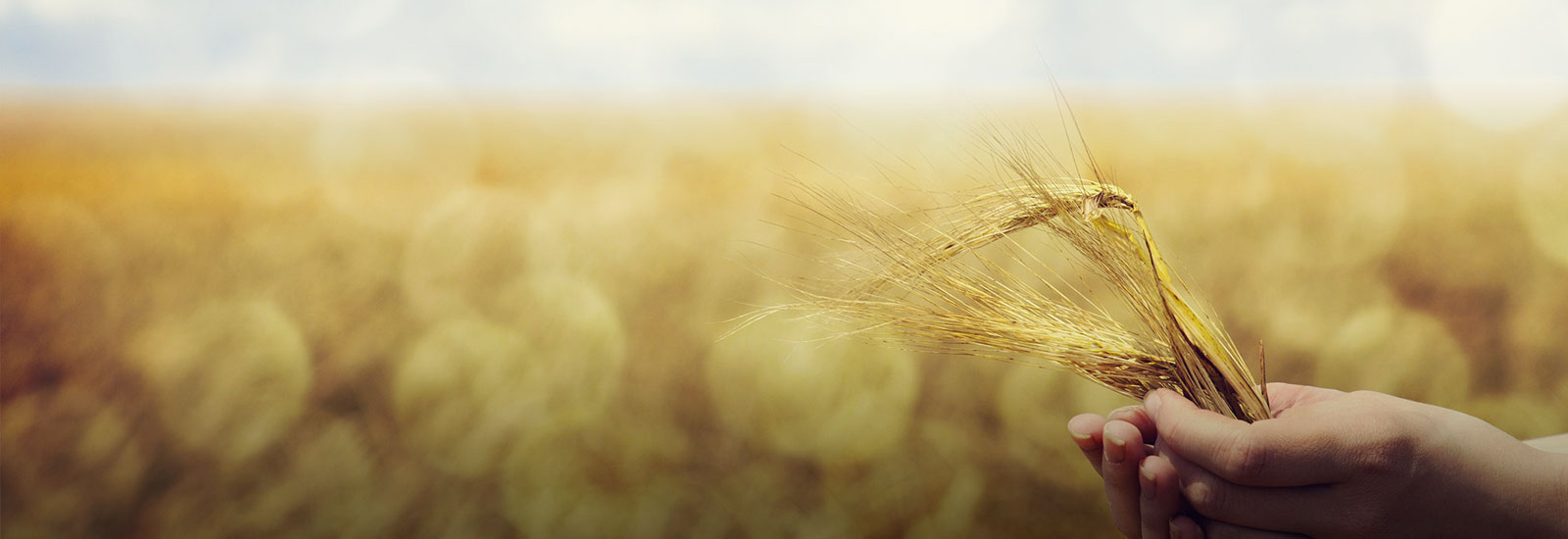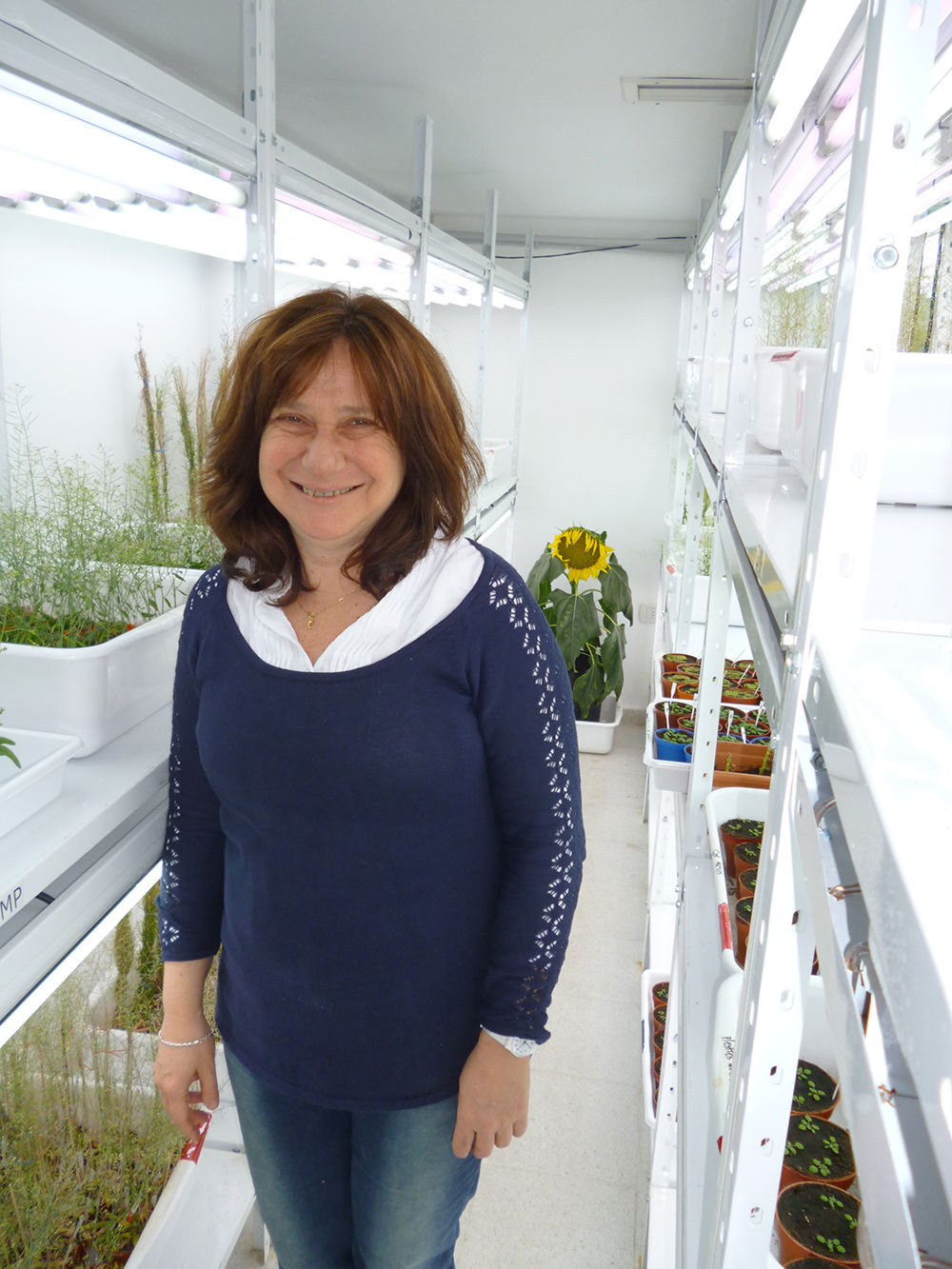
Raquel Lía Chan
Raquel is a Plant Molecular Biologist devoted to scientific research at the Institute of Agrobiotechnology of Litoral, Argentinean National Research Council and National University of Litoral. Her group aims to understand how organisms like plants can adapt to the environment, which molecules are involved, and how they function.
What are you researching?
One of the experimental strategies we use to understand how plants adapt to the environment is transforming model plants with genetic constructs able to express foreign genes. We isolated genes from the sunflower, a species well adapted to different environments, and introduced them firstly in Arabidopsis (a small flowering plant native to Eurasia and Africa commonly known “thale cress”) and then into soybean and wheat. We obtained positive results for abiotic stress tolerance and yield.This project could have a huge impact. Thanks to a public-private partnership, both these soybean and wheat varieties will be the first transgenic crops developed in an Argentinean public institution. There is a high possibility they will arrive on the market during this year.
Why do you love your job?
As an old adage states “Choose a job you love, and you will never have to work a day in your life.” My job is amazing everyday; each morning I go to the lab asking myself what I will learn. I learn from discussions with my students and colleagues. I learn from plants, from scientific literature, from reviewers’ opinions. I come back home everyday knowing something that I did not know in the morning. Scientific research is the opposite of routine, it is always exciting and motivating.
What inspirited you to become a scientist and work in this area?
Science is fascinating. I chose my career aiming at understanding how living beings adapt themselves to environmental conditions. At the beginning I was interested in all life forms knowing that individuals belonging to a certain species, having all the same genetic background, develop different phenotypes/forms. Then, I understood that it was complicated, almost impossible, to study which molecular mechanisms trigger so different living organisms like bacteria and humans and so, plants were my choice. Plants are everywhere, plants are our food but they are also our clothes, our medicines, and our furniture. I do not regret, plants are amazing and teach us something new every day. Humans cannot live without these amazing living entities and hence, we must know, understand and care them. Improve plants yield and availability to provide food to everyone everywhere will avoid wars and conflicts. Working and studying plants is, indirectly, a little contribution to world peace.
How did you get here?
Working always with pleasure to overcome difficulties and trying to do something new every day.
Science is fascinating. I chose my career with the aim of understanding how living beings adapt themselves to environmental conditions. At the beginning I was interested in all life forms knowing that individuals belonging to a certain species with the same genetic background develop different phenotypes/forms. Then, I realized that it was complicated, almost impossible, to study which molecular mechanisms trigger different living organisms. And so I choose plants instead.
I don’t regret my choice, plants are amazing and teach us something new every day. They are everywhere, making up our food, but also our clothes, our medicines, and our furniture. Humans cannot live without these amazing living entities, and hence, we must know, understand, and care for them.
In the long-term improving plant yields and availability to provide food to everyone everywhere, will avoid wars and conflicts. Working and studying plants is, indirectly, a small contribution to world peace.
What is your advice for young women wanting to contribute to sustainable food and farming?
There are thousands of things to do in order to obtain more and better food. It is important to pose the right questions to learn what problems farmers are facing and then create solutions. It is important to always consider poor countries and regions lacking technologies; new developments must be easy to apply in any place.
Listen and learn from others: your students, your colleagues, farmers, companies’ CEOs and learn all you can.
Do not give up and do not discriminate against female or male students. Fight for equality: men and women need to join forces to overcome serious problems.
How does agriculture need to change to be fit for the future?
Agriculture needs to seriously consider the environment and all the people worldwide. We need more food, but we need a healthy environment to live in, and a healthy environment includes eliminating hunger forever.
What’s one challenge you face as a woman in agriculture and what do you think needs to be done to overcome this?
The most important challenge is winning the battle against ignorance. Most of the people afraid of genetically modified crops do not understand what GMO means. Good research together with good discussion and education – not only in universities but in high schools, clubs, churches – is difficult but important in advancing knowledge about agriculture. It is important to devote part of our time to teach and to explain to others what we are doing.
Raquel is just one of many inspirational women working in agriculture. Visit our Female #FoodHeroes page to hear from other women working to improve plant science and nutrition.


